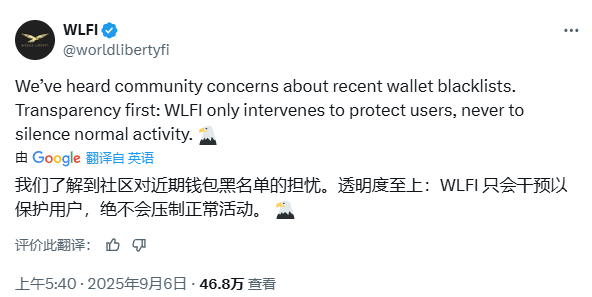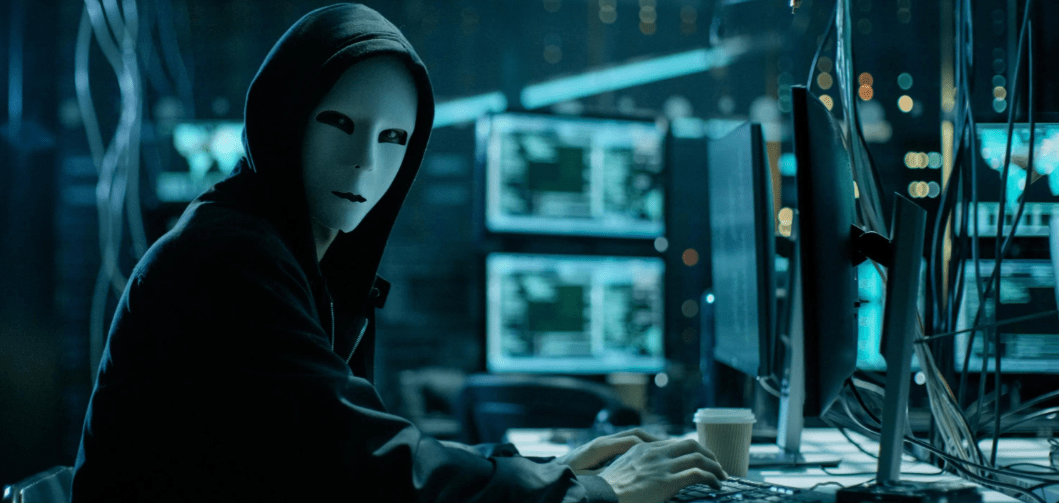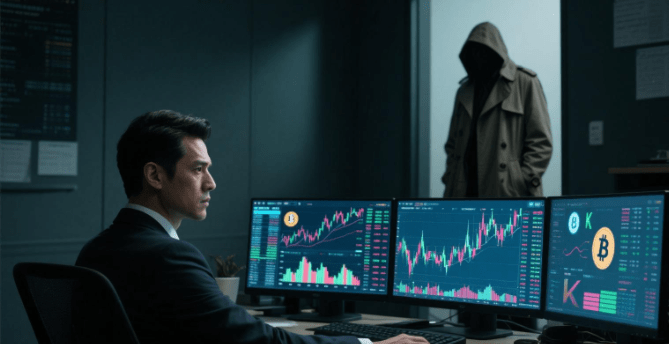A sudden large-scale ban has plunged the cryptocurrency project supported by the Trump family into a fierce debate between centralization and decentralization. On September 6, 2025, World Liberty Financial (WLFI) officially announced that it had blacklisted 272 wallet addresses over the past few days, which represents a very small portion of the total number of holders. This has sparked strong community attention, especially with reports that Sun Yat-sen's wallet address has also been frozen by the project, involving assets valued at over $100 million. However, so far, the WLFI team has emphasized that this move is a "temporary measure taken to prevent harm during the investigation and assist affected users."

According to data disclosed by WLFI, all 272 addresses listed in the blacklist have been verified.
215 are related to phishing attacks, and the team claims that proactive intervention was taken to prevent hackers from transferring funds, and is working with legitimate owners to safeguard and transfer these assets; another 50 addresses were part of a blacklist protection requested by the team after the owners reported theft through support channels; the remaining cases have not been individually clarified.
These data indicate that the WLFI team is attempting to portray the ban as a security measure to protect user assets, rather than an arbitrary market intervention. The team emphasized in a statement: "We never actively seek to ban any accounts, only taking action when malicious or high-risk activities that may harm community members are discovered."

Supporters argue that this is a necessary security protection mechanism.
Supporters believe that WLFI's approach reflects a high level of responsibility for the safety of user assets. In the cryptocurrency field, hacker attacks and phishing scams are common, and proactive intervention by the project can reduce ordinary investors' losses.
This proactive protection model is particularly suitable for cryptocurrency newcomers, who may lack the experience to identify and guard against complex scams. The WLFI team is committed to working with legitimate owners to safeguard/transfer assets, showing a responsible attitude.
Blockchain security expert ZachXBT stated: "I am glad to see that the World Liberty Financial team has taken a more proactive approach than other teams like Circle, as this will ultimately benefit the victims."

Opponents maintain that this violates the original intent of decentralization.
Critics point out that this large-scale ban seriously violates the core principles of decentralization and censorship resistance in cryptocurrency.
In cryptocurrency and blockchain technology, decentralization and censorship resistance are regarded as core spirits. However, WLFI's blacklisting of specific wallet addresses and freezing of assets undoubtedly challenges this principle.
This centralized exercise of power allows the project team to unilaterally decide on the disposition of user assets, which goes against the cryptocurrency community's advocated principle of 'your private key, your coins.'
Sun Yuchen is the focal point of the controversy surrounding this ban action.
In this blacklist incident, the most notable aspect is that Sun Yuchen's wallet address was frozen. According to BlockNews, the project team suspects that exchanges (including Huobi) are manipulating the sell-off to lower prices.
As an early investor and promoter of WLFI, Sun Yuchen received a large allocation of tokens, estimated to exceed 300 million WLFI, worth over $100 million. Sun Yuchen publicly promised to lock up the tokens and not sell them to stabilize market confidence. However, on-chain data shows that addresses associated with Sun Yuchen have engaged in suspected sell-offs through multiple intermediary addresses. As a result, the project team blacklisted his address, freezing over $100 million in WLFI.

WLFI's unique positioning may represent a dilemma that cannot be reconciled. Unlike many decentralized projects, WLFI explicitly emphasizes regulatory compliance, operating as a Delaware-based company, and is endorsed by U.S. President Trump, fully adhering to the U.S. legal framework.
However, the WLFI token itself is designed as a non-transferable governance token, offering no financial returns or opportunities for trading on cryptocurrency exchanges. Each wallet has a 5% voting limit, aimed at preventing whales from dominating governance.
There is also some contradiction, after all, enjoying the protection of regulatory compliance while retaining certain characteristics of decentralized governance.
This large-scale ban event has had a direct impact on WLFI's market performance. Coingecko data shows that the WLFI token dropped by 13.8% within 24 hours, falling from $0.3086 on September 1 to a low of $0.1671 on September 4, indicating that market confidence in the project has been severely shaken. This incident has led to strong community skepticism about the degree of decentralization of the WLFI project, reflecting the practical difficulties and potential risks of decentralized governance.

We might as well think deeply about it; the WLFI incident raises a deeper question: to what extent is centralized intervention acceptable in decentralized financial projects? Complete non-intervention may mean allowing hackers and scammers to profit, while excessive intervention contradicts the original intent of cryptocurrency. This balance is difficult to grasp, and different projects may have different answers.
The winning hand personally believes that the project should clearly disclose its intervention policies and capabilities before launching, so that investors can make informed decisions, rather than suddenly implementing large-scale bans after the fact.
Do you think the large-scale ban of WLFI addresses is necessary user protection or excessive centralized intervention?
#特朗普家族币 #WLFI
Follow more treasures of the winning hand waiting for you to discover, bringing you the latest market trends and layouts, everyone is welcome to discuss more insights!!!!

